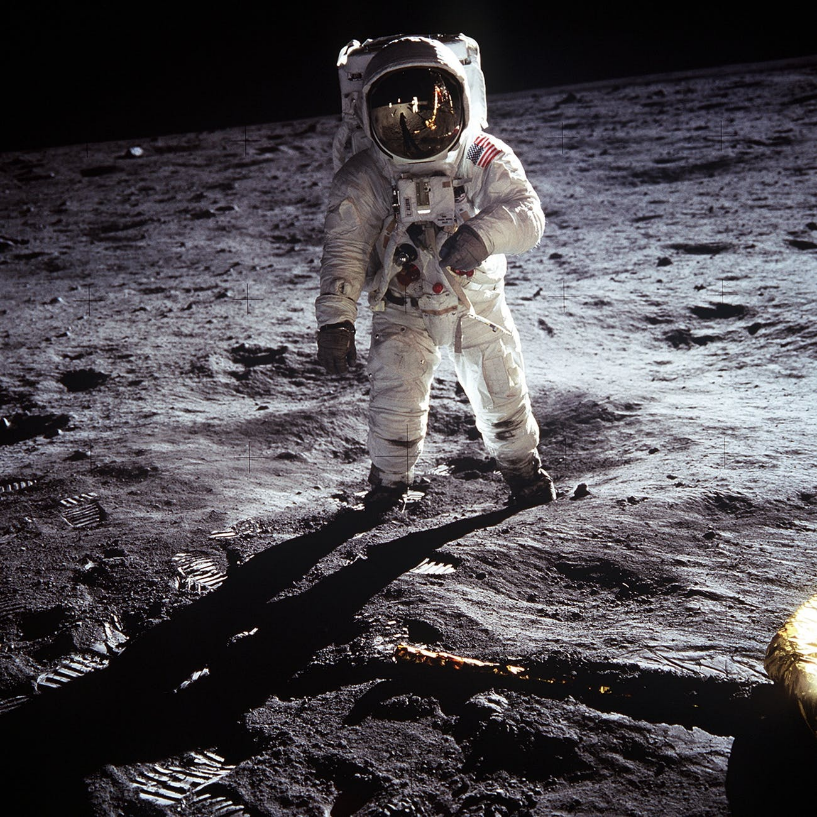Space. The final frontier. The vast unknown in which mankind has always looked at in awe. Humans have longed to understand the intricacies of what is beyond our own world, but up until now, this has been reserved for only a select few. That is all changing with innovators working to build privatized space exploration programs.

Instead of leaving it up to NASA, several companies are working toward the goal of building the resources and infrastructure necessary to put a human being on Mars. Alternatively, other space exploration companies are using their resources to provide private trips outside of Earth’s atmosphere and explore the vast reaches of space. This new space race is heating up, with each of the participants citing their own goals and motivations for the journey ahead.
Yet, the privatization of space travel, which has been dubbed “The Billionaire Space Race”, leaves many to wonder if these ventures are truly altruistic, or simply being used to grow the fortunes of the already wealthy.
Different Projects for Different Goals
Not all space exploration companies are created equal. Each project has its own goals and dreams, mostly driven by their billionaire leaders at the helm.
Richard Branson’s Virgin Galactic is currently building its way toward commercial space travel, without any clear goal of further exploration. Branson and his team want to make traveling to space accessible for anyone that can afford it. The company has already tested flights with human pilots back in late 2018. The company’s lively founder believes it is only a matter of months before he himself will be flying outside of Earth’s atmosphere. Virgin Galactic is part of the bigger Virgin Group which also includes space exploration companies Virgin Orbit and The Spaceship company.
Alternatively, SpaceX, run by Tesla founder Elon Musk, is full steam ahead into space exploration, and maybe more importantly, colonization of foreign planets. Musk sees the possibility of SpaceX colonizing Mars by 2025 and radically changing the world in the process. It has been the first company to return a spacecraft from low Earth orbit and continues to manufacture and launch rockets and spacecrafts of all kinds.
The last major player in the industry, Blue Origin, is also looking to explore the far reaches of space to benefit our planet. Blue Origin is backed by massive wealth originating from its founder, Amazon CEO Jeff Bezos. According to the company’s vision, going to space is not just an interesting idea, but something necessary to human survival. “In order to preserve Earth, our home, for our grandchildren’s grandchildren, we must go to space to tap its unlimited resources and energy,” the company says.
Is Space Travel Worth It?
Unfortunately for these space exploration endeavors, not much progress has been made in the past 50-years. While there have been technological innovations and upgrades to the way space travel is conducted, it appears that we are not much closer to landing a human on Mars or extending our exploration of the outer reaches of space. This is a huge disappointment given the rapid advancement the world has seen in other areas like technology and communications. One of the biggest hurdles is that the cost of space travel remains astronomical and in the minds of many, not worth it. It takes billions in capital resources (which is why each of the three aforementioned companies was started by a billionaire) to even fund the early stages of space projects. At the same time, a host of space travel failures bring into question whether it is worth risking human life for such endeavors.

But if you ask the billionaire executives, this doesn’t tell the full story. Richard Branson believes that amidst the broken promises, his company has made huge progress over the past decade and has already been successful in test flights to space. Similarly, Elon Musk has applauded China for its technological progress in space travel and research, and truly believes the first humans could inhabit Mars in about 30-years.
Obviously it is in the nature of these billionaires to tout the progress of space exploration, as they have invested significant resources and time into these projects. On the other hand, it appears the average person has all but given up on space travel, believing that space exploration and travel is not a priority or necessary at all.
Visionary Founders
It doesn’t just take billions of dollars to fund space exploration, it takes a strong will and determination to lead the way. Each of the private space exploration companies are led by visionaries and fearless leaders, such as Richard Branson, Elon Musk, and Jeff Bezos.
For Musk, SpaceX isn’t just about far-off adventures in space, but also providing improved travel on Earth. The SpaceX Hyperloop is a project which helps innovators tackle the problem of human transportation by increasing travel speeds exponentially with the use of a system of sealed tubes. Virgin has also gotten in on the Hyperloop action with a project of its own.
Bezos believes that Blue Origin, not Amazon, is the most important thing he is working on at the moment. One of the biggest reasons is due to the astronomical cost to enter the market that very few people in the world can afford. “Two kids in their dorm room created Facebook, which has a half-trillion-dollar market cap. It’s a giant company,” said Bezos. “Two kids in their dorm room today can’t do anything big in space. It’s not practical. The price of admission is just too high.”
The challenge of space travel doesn’t worry Richard Branson, who remains confident in almost everything he does. In fact, Branson believes that success is imminent. “Space is hard – but worth it. We will persevere and move forward together,” says Branson.
For Humanity or Profit?
Anytime a huge project such as space exploration is started, the question is often asked: is this being done for profit, ego, or to better humanity? The true answer is likely some combination of the three. While the motivations of space exploration might be pure at heart, there is also a significant amount of money, and in turn, bragging rights on the line for whoever wins the race. All told, the industry has received more than $18.4 billion in funding since the turn of the century, making it a sizable industry set to grow over the coming decades.

SpaceX reported revenues of $2 billion in 2018 after entering the market at a lower price point than its competitors. The company has even found a way to substantially increase its profits over the past few years, with operating profits now exceeding 30%. Virgin Galactic announced its plans to take the project public in the wake of a profitable space tourism business model. In a merger with Social Capital Hedosophia Holdings Corp., Virgin will look to accelerate its projects on the public markets. It is clear that Virgin is catering only to the wealthy, with trips to space expected to cost more than $200,000.
Outside of huge profit potential, it’s no secret that billionaires like Branson, Musk, and Bezos like to be viewed as all-powerful executives who can save the human race, and their endeavors into space only feed this further. Still, it is clear that all three men are driven by the desire to pave the way for the future of the world, where space travel and even life on other planets, is a possibility.
Bezos has mentioned how important Blue Origin is to him not just because of what can be accomplished in his lifetime, but for what is to come. “This is super important to me, and I believe on the longest time frame — and really here I’m thinking of a timeframe of a couple of hundred years, so over many decades — I believe and I get increasing conviction with every passing year, that Blue Origin, the space company, is the most important work I’m doing,” Bezos said.
For Musk, the thought of a dwindling human race on Earth drives his focus. “One [path] is that we stay on Earth forever and then there will be an inevitable extinction event,” he said. “The alternative is to become a spacefaring civilization, and a multi-planetary species.”
Branson, on the other hand, isn’t so preoccupied with saving the world, and seems more committed to fulfilling his dreams of space travel. “I have been dreaming of space travel since I watched the moon landings from a tiny black-and-white television screen in 1969 and looked up to the skies in wonder,” Branson wrote to CNN. “I was in awe of the courage it must have taken — to turn something seemingly impossible into a reality. This fascination with flying, breaking boundaries, and exploring the great unknown has never left me.”
A Road Paved by the Wealthy
No matter how you slice it, the race to Mars and the outer reaches of space is being completely fueled by some of the wealthiest individuals on our planet. This isn’t to say that Jeff Bezos, Elon Musk, and Richard Branson don’t actually want to help humanity, but their seemingly pure intentions should be viewed with a grain of salt.
For the rest of us, maybe we should just feel lucky that these individuals are pouring hoards of cash into space projects. Who knows, maybe one of them will actually lead to a better life for our grandchildren in space or on another planet.


